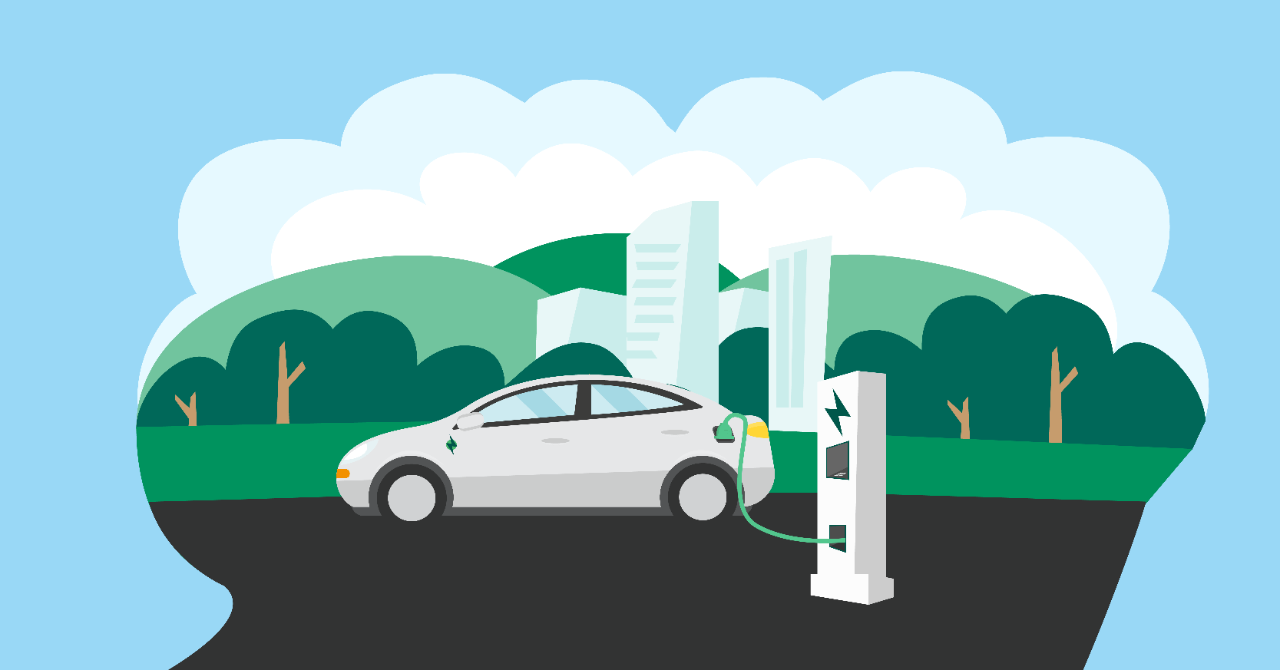Green Mountain Energy® Blog
5 COMMON MYTHS ABOUT ELECTRIC VEHICLES



To many people, electric vehicles (EVs) still seem like future technology. Even with more EVs on the road every year and major car manufacturers racing to release a full line of electric vehicles, the average person still thinks that driving clean with an EV is out of their reach. But this simply isn’t true. Electric vehicles are here, and they’re more attainable than ever.
Here are a few of the most common myths about EVs that aren’t a reality here in 2021.
1 Myth: Electric vehicles are too expensive.
Not anymore, they aren’t. EVs used to be out of the price range for the average consumer, but like any new technology the price has dropped almost every single year. Today, you can expect to pay as much for an electric vehicle as you would for its gas-powered counterpart. But hey, don’t take our word for it; check out this handy chart from InsideEVs for EV price comparisons.
2 Myth: You can't drive very far in an electric vehicle.
Yes, you can. The U.S. Department of Transportation reports that the average American drives roughly 40 miles each day — a distance the average EV can easily handle.
Plus, just like new technology is driving down the price of EVs, it’s driving up their range. On the low end, more affordable EVs can go about 150 miles before needing to recharge; on the high end, the Tesla Model S Long Range can go as far as 400 miles. And even if you’re planning a longer road trip, you can use PlugShare to plan your route and find an electric vehicle charging station anywhere in the country.
3 Myth: Electric vehicles are slower than gas-powered cars.
Not true. In fact, since the electric motor generates 100% of its available torque instantly, an EV is generally quicker than a gas-powered vehicle. Even in a lower-end EV, you’re going to jump off the line at a stoplight faster, and you’ll feel the difference. However, if you really have the need for speed, we’d suggest giving a Tesla Model S a spin. In Ludicrous Mode, you can go from 0 to 60 in 2.5 seconds! (Just make sure you follow the rules of the road.)
4 Myth: You'll pay more to charge an EV than you will in gasoline.
Wrong again. According to the U.S. Department of Energy, the electricity to charge an EV costs the equivalent of about $1.25 per gallon. The average EV gets about 100 mpge (miles per eGallon) in fuel economy. Just in case you don’t want to do the math, that works out to about $375 a year … A YEAR!
Plus, if you enroll in our EV-tailored Solar All Nighter for EVs plan in Texas, you can charge your EV on clean, pollution-free solar energy for a lower price at night.
5 Myth: EV's pollute just as much as gas-powered cars.
Not by a long shot. While it’s true that there’s roughly the same carbon footprint associated with manufacturing an electric car as there is with building a gas-powered car, that’s where the similarity ends. In fact, so many more emissions come from driving a gas-powered car that, when you look at the full life cycles of each vehicle, the EV is significantly cleaner from cradle to grave.
Manufacturing and maintenance are the only carbon footprints that an EV can’t completely avoid. If you charge your EV using renewable electricity, the carbon cost of driving is virtually zero. Compare that with a gas-powered car that’s belching out 19.8 pounds of CO2 with every gallon of gas that it burns, and the impact isn’t even close. And if you live in Texas and drive a Tesla, you can even use the Green Mountain App to track how much CO2 you’re avoiding in real time when you sign up for a plan with us.
The hesitancy to jump into an electric vehicle is based on the EV’s supposed limitations when compared with traditional, polluting gas-powered vehicles. But there have been some significant strides in the past decade that have made many of these perceived limitations a thing of the past. Now that you know these myths aren’t true, we hope you’ll consider switching to an EV. With our EV Concierge service, we can even help find the right one for you (not to mention help you avoid dealer shenanigans).
Find a renewable energy plan that helps your home go green.
Enter your ZIP code to get started.
Our customers have avoided
pounds of CO2
That’s like planting
new trees.





